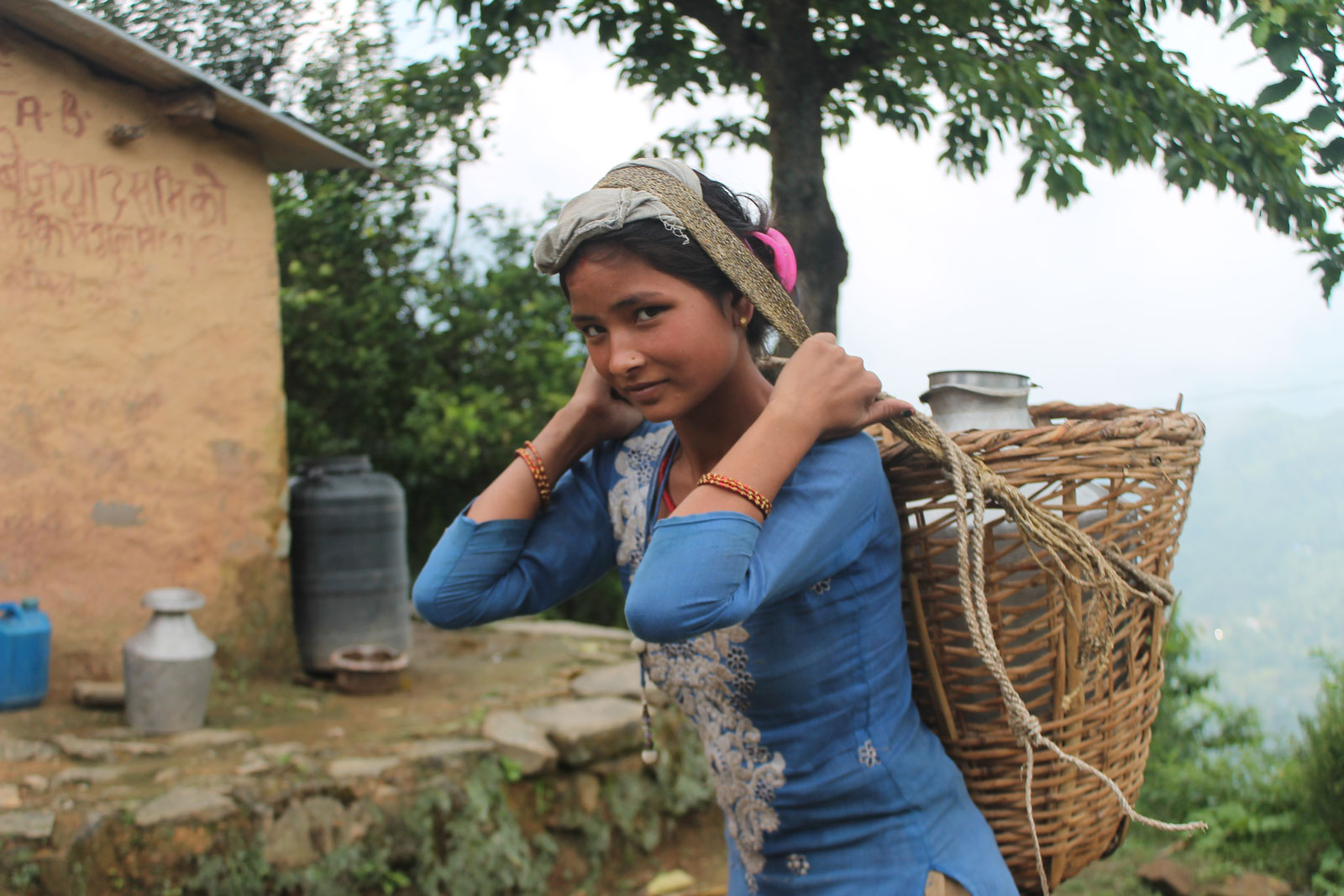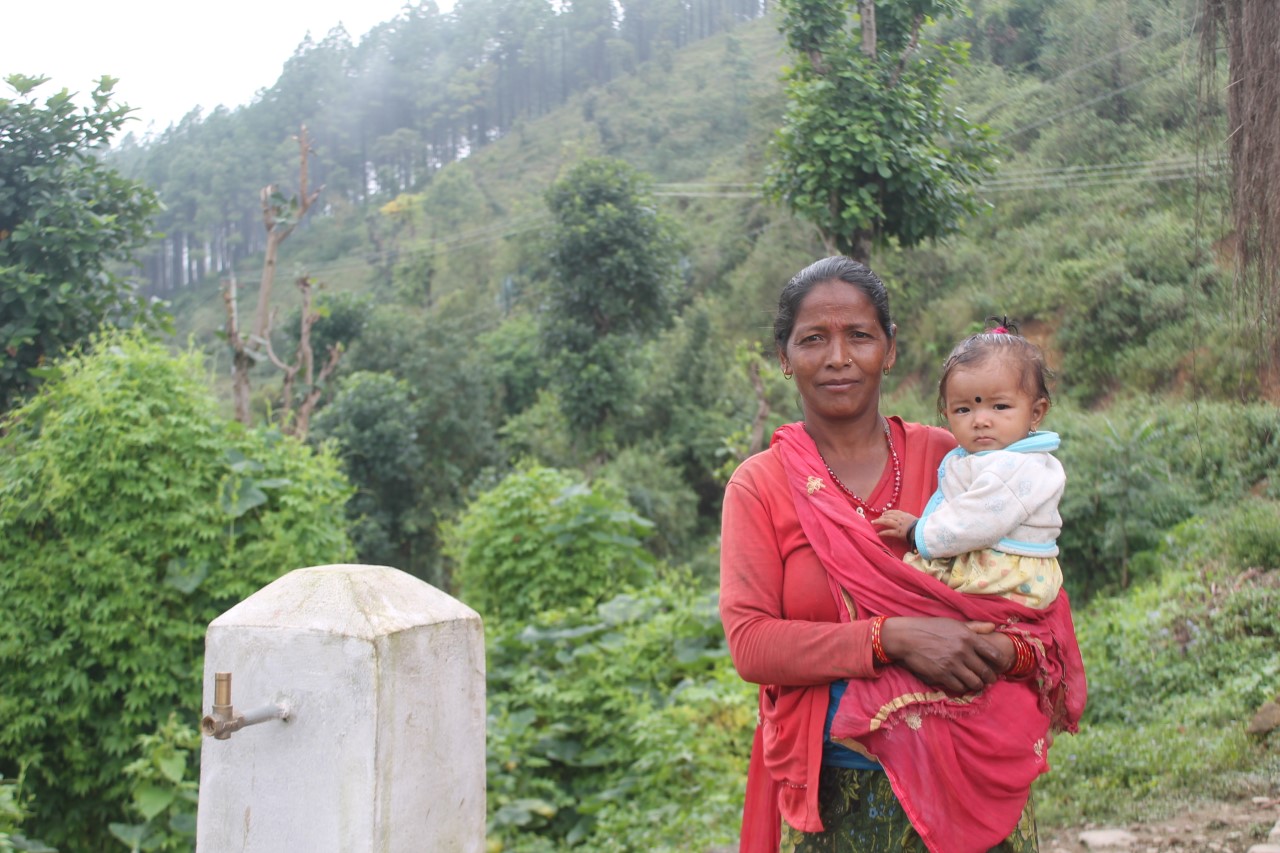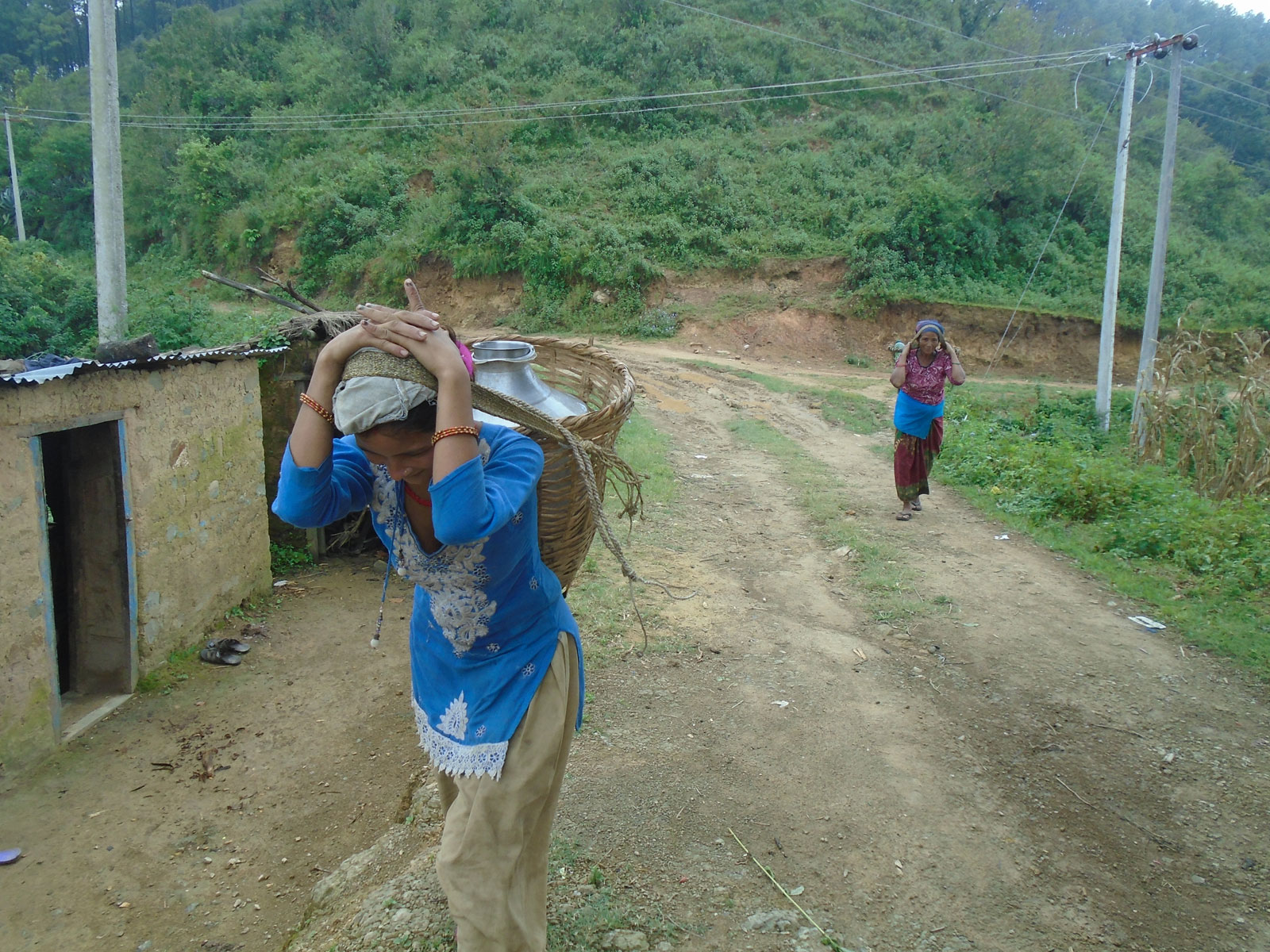December 28, 2018
Unica Foundation supports a project named Solar Multiple Uses System (MUS), in collaboration with Renewable World (RW), a British charity organization that is active in Nepal. The project is located in Surkhet district, in the midwestern region of Nepal. This project aims to make a difference for the communities by means of solar-powered water pumps, which lift water from the source downhill and lead to cranes outside their homes.
The project runs in the second quarter and has started working in the ground. While carrying out the field assessment, RW has developed couple of case-studies that reflect the genuine need of the community. The following case-study is one sample that speaks loudly the reason behind choosing the project for this specific area in Surkhet. The case-study is presented here as first person narrative of one of the fieldworkers.
Pabitra and Chandra Sunar from the Jugedhara community (Surkhet)
I first met 18-year-old Pabitra Sunar as she trudged through her village of Jugedhara, in Surkhet district, carrying 20 liters of water on her back, from a source that lies an hour’s walk from her house. This is a journey that Pabitra endures six or seven times a day, just to collect enough water for her family to drink, wash, cook and tend to their livestock. As she reaches her home, her mother-in-law, 40-year-old Chandra Kali Sunar, who is balancing Pabitra’s 10-month old baby on her hip, greets her. Now that Pabitra has returned, it’s Chandra’s turn to make this same journey.
This endless cycle of carrying water up and down the steep hill that lies between her home and the nearest water source is not the only life that Pabitra has ever known. Before she got married at 16 years old, Pabitra lived in Surkhet town, just 18 kilometers away, but seemingly a world away from her life now. Ironically, her husband found work in an engineering workshop in the town she left behind. He rents a room there as it’s too far and too expensive to travel there every day, but for Pabitra, her husband’s village is now her home, and her husband’s family is now her own. Pabitra’s sister-in-law also left the village and now lives with her husband in Surkhet town. Now she has gone, Pabitra has taken her place as the youngest female in her household and so a large share of the household chores falls to her.
For Chandra, her daughter-in-law’s life strongly mirrors her own. She too moved to this village when she got married. For the last 15 years, Chandra has managed her household while her husband works as a mason in Shimla (India), returning for just a few months a year once the festival season starts in October through until the potato and bean crops are harvested. Chandra and Pabitra depend on the money sent home by their husbands to survive and to put Chandra’s younger son, who is 11 years old, through school.
When we sit and chat to Chandra and a group of other women from Jugedhara later that morning, they tell us that over the last 10 years things have got harder for them in the village. Back then, there was more rain throughout the winter season and they were able to grow linseed and mustard from which they produced their own oil. They also managed to grow larger crops of wheat and maize, which they consumed at home. Now the rainy season is too short and unreliable to ensure a successful harvest.
But there is hope of a better future on the horizon for Pabitra, Chandra and the other 104 families that live in this community. As Chandra talks to us, she rests against a tap stand that was recently installed outside her house. With support from Renewable World, matched by a generous financial commitment from the local government, the promise of water being piped directly to her house is soon to become a reality. Every household has already contributed their hard-earn savings and put in approximately 50 days labour to build a tank next to the water source, that is connected by a pipe to another tank, which is built at the highest point of their village. From this tank runs an elaborate distribution system that fans out across the hills and culminates in a tap stand outside every single house. The final step for Renewable Word is to support the community to choose providers of solar panels and a water pump, which will together bring the water to their doorsteps, changing their lives forever.
Chandra tells us that she is looking forward to being able to plant a kitchen garden with the newly available water. She already has plans to plant onions, cabbages, cauliflower and tomatoes. She may also be able to increase the number of livestock she can keep. With the agricultural training that will be provided by Renewable World, Chandra, Pabitra and the rest of the community will learn which crops will grow most successfully in the face of a changing climate. They will gain skills in affordable, climate-smart techniques to help enhance their crops, including how to use plastic tunnels and how to implement integrated pest management. They will then be able to choose whether to eat all their new products or sell some of their produce at the market, giving them a supplementary income. For Chandra and Pabitra this change can’t come too soon.












